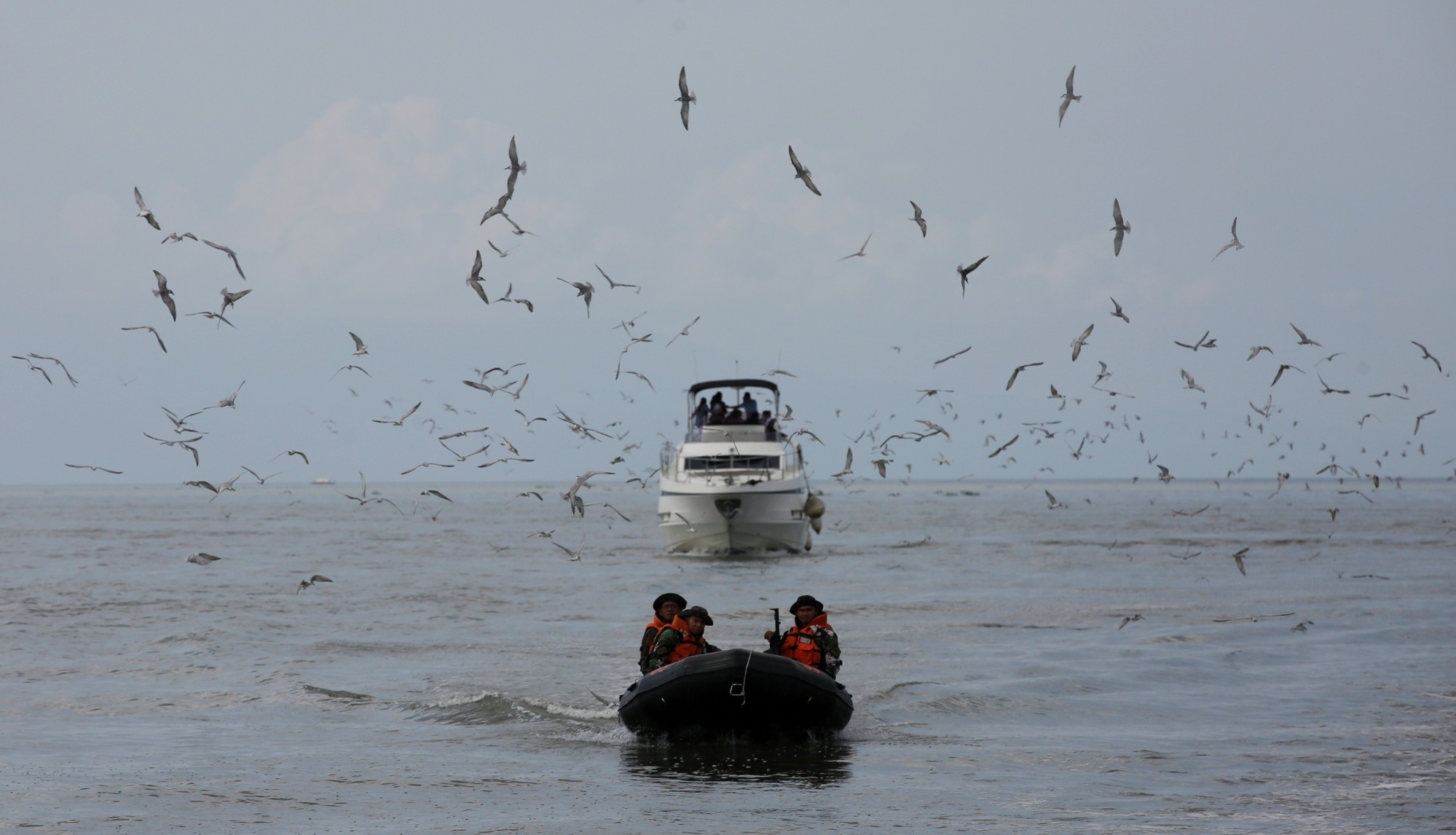
CONTAINMENT For its first target, the Manila Bay rehab program hopes to bring down the water’s fecal coliform levels. —LYN RILLON
It’s all systems go for the “Battle for Manila Bay.”
Unlike the historic combat that involved ships, cannons and guns, this modern-day battle will be waged against waste and pollution in the bay famous for its golden sunset.
On Sunday, various government agencies led by the Department of Environment and Natural Resources (DENR) will kick off the ambitious rehabilitation project, which seeks to restore the heavily polluted bay to its former glory.
5,000 participants
The rehabilitation program, which will cost P42.95 billion in the next three years, is expected to bring more than 5,000 participants.
While most personnel will come from the DENR, the program will also involve 12 other government agencies tasked by the Supreme Court through a writ of continuing mandamus issued in 2008 to clean up and rehabilitate Manila Bay.
While environment officials had recognized the magnitude of the problem, Environment Secretary Roy Cimatu claimed that this battle “is not a lost cause.”
Solidarity walk
“This is a battle that will be won not with force or arms, but with the firm resolve to bring Manila Bay back to life,” Cimatu said in a statement on Friday.
Sunday’s launch will begin with a solidarity walk at 7 a.m. from the Quirino Grandstand to the baywalk area in front of Rajah Sulayman Park.
Aside from Cimatu, expected to be at the kickoff are Tourism Secretary Bernadette Romulo-Puyat and Interior Secretary Eduardo Año.
During the launch, simultaneous activities will also take place in other areas, including mangrove planting at the Marine Tree Park in Navotas City and clean-up activities at the Las Piñas-Parañaque Critical Habitat and Ecotourism Area and in the rivers and other waterways in the provinces of Cavite, Bulacan, Bataan and Pampanga.
Cimatu earlier said that during the kickoff, the DENR would also disclose the initial list of establishments found to be polluting Manila Bay.
These establishments would be issued notices of violation and would be given at least three months to put up sewerage treatment plants and comply with the standards under the Philippine Clean Water Act and other environment laws.
The massive cleanup will affect all the cities and towns surrounding Manila Bay.
Informal settlers
The project will also involve the removal of over 220,000 informal settler families living along the estuaries that discharge into Manila Bay.
The DENR is in talks with the National Housing Authority for proper relocation for these communities.
The rehabilitation aims to bring down the coliform level in Manila Bay from the current level of 330 million most probable number (MPN) per 100 milliliters to the acceptable level of 100 MPN per 100 ml. The target is to reduce the level to 270 MPN per 100 ml by yearend.
Sewage treatment plants
The Metropolitan Waterworks and Sewerage System (MWSS) is now working with its concessionaires, Manila Water and Maynilad Water Services, to ensure their full compliance with the Supreme Court continuing mandamus through the installation of more sewage treatment plants.
MWSS administrator Reynaldo Velasco said that Manila Water and Maynilad had agreed to fast-track their projects to attain 100-percent sewer and sanitation coverage by 2037.
He admitted that only 15 percent of water consumers are currently connected to sewer lines.
Manila Water currently operates and maintains 38 sewage treatment plants while Maynilad operates 19.